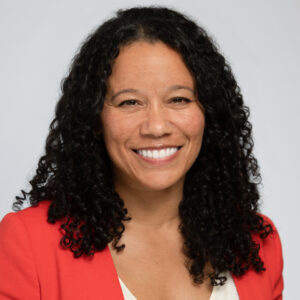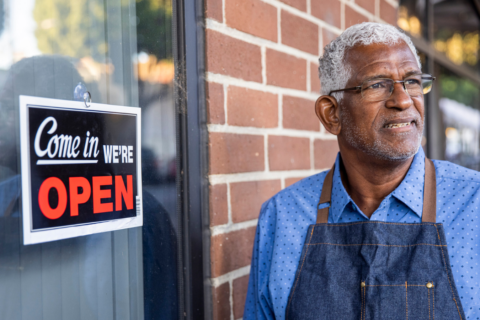Sheila Ellis-Glasper, founder and president of the Black Entrepreneurs of the Flint Hills (BEFH), has spent 13 years as an entrepreneur. When she sought financial assistance to expand her second venture, she discovered a lack of local options for supporting minority businesses. This led her on a journey across various cities in Kansas, only to find that she didn’t qualify for grants and reimbursement funds due to her non-resident status. Faced with limited choices, Ellis-Glasper realized that self-funding or relying on banks were often the only viable options. This realization inspired her to establish BEFH, a groundbreaking initiative aimed at addressing the capital accessibility challenges faced by Black entrepreneurs.
Challenges Faced by Black Entrepreneurs
Access to capital remains a significant hurdle for Black entrepreneurs. Statistics confirm that while Black entrepreneurs – especially Black women – are the fastest-growing group of entrepreneurs in the nation, they receive the least funding. Black-owned businesses are twice as likely to be denied loans compared to their white counterparts, and minorities face higher interest rates and other banking challenges. Ellis-Glasper recalls a client’s experience where 12 banks rejected their loan application for a child care center, prompting the owners to resort to using their parents’ retirement funds as collateral. Such extreme measures are not uncommon, highlighting the desperate need for improved capital accessibility.
The Birth of Black Entrepreneurs of the Flint Hills
To address the capital gap, Ellis-Glasper initiated discussions with minority entrepreneurs in the Flint Hills region. Their goal was to strategize on how to find, share and bring resources to their community, specifically supporting black-owned businesses in Riley, Geary, and Pottawatomie Counties. Recognizing the importance of pooling resources in rural areas, BEFH was established. This organization offers culturally competent training, mentorship, technical assistance, and access to capital, aiming to bridge the racial wealth gap within the region.
To further their mission, BEFH joined NLC’s City Inclusive Entrepreneurship (CIE) Program. Through this program, the organization partnered with Collab Capital, a venture capital firm and expert in capacity financing, to prepare Black-owned businesses and explore new debt solutions with lenders. The organization plans to survey local banks, lenders, and Black-owned businesses to identify patterns in capital accessibility. They will also establish relationships with lending partners offering financial readiness programs to provide educational tools and guidance.
By the end of the program year, BEFH intends to develop a brief based on survey results, convene lenders to discuss trends, and propose adoptable lending solutions. Additionally, they will organize educational workshops to prepare Black small businesses for capacity financing and venture capital. While solidifying banking relationships remains an ongoing effort, Ellis-Glasper is confident that the program will generate tangible evidence to demonstrate the challenges faced by Black founders when accessing capital. The research findings will be shared with city leaders, banks, constituents, and supporters to foster a stronger community.
“My hope is through this program, we build better banking relationships, so our business owners of color understand what the process is to become bankable. And that banks and financial institutions also understand the challenges that our businesses face when it comes to accessing capital.”
Sheila Ellis-Glasper
How BEFH Is Doing It
- Built a network of support, including their sponsor K State Innovation Partners, the City of Manhattan, Kansas, Kansas State University, the Manhattan Area Chamber of Commerce, Kansas African American Affairs Commission under the Kansas Governor’s Office, Kansas Department of Commerce and Kansas Black Leadership Council and the Kansas Health Foundation
- Formed a directory of Black-owned businesses, the first of its kind, to stretch across the three counties it serves
- Presented to the Manhattan, Kansas, City Council twice to create a revolving loan fund where business owners would have access to a low collateral, low credit loan fund and can work with Black Entrepreneurs of the Flint Hills to obtain technical assistance and coaching on how to utilize these funds
- Partnered with Network Kansas, a nonprofit in Kansas, to provide entrepreneurs with gap financing and a pitch competition
- Partnered with global network Sistahbiz to facilitate the region’s first Black and Bankable curriculum to provide Black-owned businesses with financial literacy to ultimately employ more people and serve more customers. This training also brought banking institutions in to discuss lending options and preparation
- Intends to use the CIE grant funding to bring the Black and Bankable program back a second year, as well as funding their own pitch competition
- Working to bridge the relationships between banks and Black communities, starting with organizing a capital event and panel with Commerce Bank
- Helped five business members get their products on the shelves of a midwestern, employee-owned grocery store chain
- Provided recommendations to the local chamber to start their DEI committee and to create an ex-officio board of directors’ role for BEFH leadership
Lessons Learned
It’s challenging being the first. As the first organization of its kind, Ellis-Glasper was used to hearing doubts on whether her organization should exist. That is, until she let the work of her organization speak for itself. They continue to educate the community about the disparities in business owners, while recognizing and supporting them, which helps recruit and retain entrepreneurs of color to the region and garner support.
Be intentional. For cities looking to do this work, they must invest in the people that want to do this work. They may not all be on the city council, or they may not all be on the board of directors at the Chamber, but they are there and belong in these conversations.
Collaboration not competition. “Because we’re rural, we really must pull all resources together to effectively serve our members among the tri-county area,” says Ellis-Glasper. Ellis-Glasper takes a holistic approach to problem solving and asks how to move forward so that everybody can be successful.
This blog is part of a series highlighting NLC’s City Inclusive Entrepreneurship (CIE) Network. Cities in the network have committed to implementing new policies, programs and practices that increase economic opportunity for residents through small business ownership and entrepreneurship. In November 2022, Mayor Linda Morse of Manhattan, Kansas, committed to identifying innovative Black-owned firms with the goal of connecting them to resources and opportunities they need to grow.









